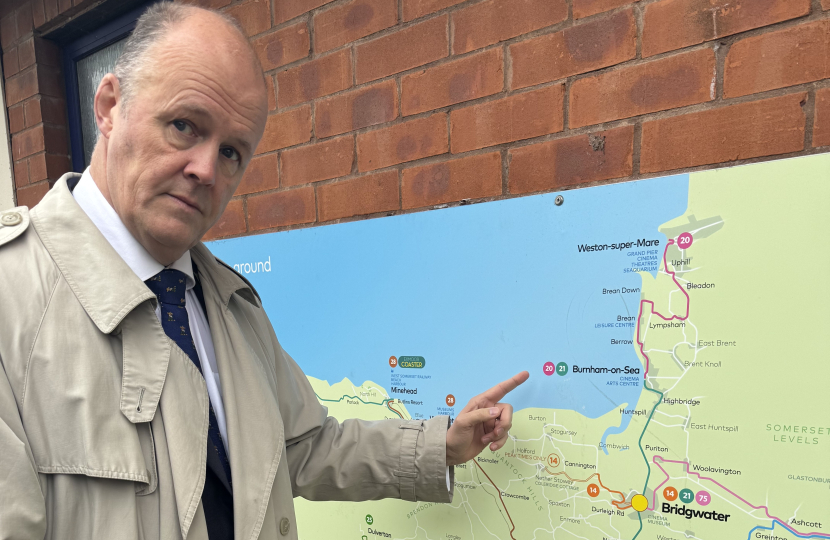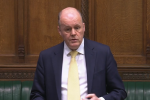
Reliable public transport is vital for communities, especially in a county like Somerset where many residents rely on buses to get to work, school, medical appointments, and social activities. But our bus services are often inconsistent, with unreliable timetables, limited evening routes, and entire areas left without adequate connections.
That’s why I launched a survey to hear directly from local residents about their experiences with bus services. Hundreds of responses made it clear that the system is simply not working as it should. People told me about buses failing to turn up, long gaps in timetables, and difficulties getting to and from work, particularly in rural areas and new housing developments.
To get a broader understanding of the challenges facing local bus services, I met with Peter Travis from the Somerset Bus Partnership. He highlighted key problem areas and reinforced what many residents had told me—particularly that the number 21 service from Burnham to Taunton is one of the most unreliable in Somerset, causing major frustrations for those who depend on it.
I took residents’ concerns directly to senior representatives from First Bus. I raised issues around reliability, the need for later-running services, and the lack of buses in key areas such as Wilstock, Stockmoor, Puriton, and Chilton Trinity. First Bus acknowledged the challenges and committed to reviewing problem routes, particularly those with existing bus stops but no active service, such as along Love Lane in Burnham-on-Sea.
But securing better bus services also requires the backing of Somerset Council, which is responsible for supporting and enhancing public transport. I wrote to the Council calling for them to use the Bus Service Improvement Plan (BSIP) funding to address the issues raised in my survey. Specifically, I urged them to:
- Support additional buses on congested routes to improve reliability.
- Subsidise later services in rural areas to boost accessibility.
- Expand services to better serve new and existing communities.
In response, Cllr Richard Wilkins, the Lead Member for Transport, assured me that my recommendations will be fed into the Council’s considerations. He highlighted ongoing discussions with National Highways and the Police about the impact of roadworks and motorway closures on local bus reliability. He also pointed to the Slinky service, a flexible transport option that many residents may not be aware of.
I welcome the Council’s agreement to consider these issues. I will continue to push for real improvements and monitor progress closely. Better bus services are key to ensuring that people across Somerset have the transport they need, especially those living in rural communities.


